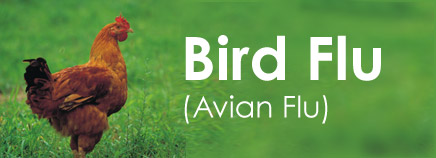PORT ANGELES — Avian flu has been found in a backyard flock of ducks, chickens and geese east of Port Angeles, and all the birds were destroyed.
The H5N2 bird flu strain is not harmful to humans. But the disease is very contagious and deadly among birds, and the fear is that it could spread into commercially-raised chickens and turkeys.
A ban on the movement of eggs, domestic poultry and poultry products within and outside of a 10 kilometer radius— 6.2 miles — likely will be placed Tuesday around the home at 92 Cosmos Lane in the Agnew area, state Department of Agriculture spokesman Hector Castro said this morning.
It wasn’t done today, Castro said, because state offices were closed because of the Martin Luther King Jr. Day holiday.
An emergency order must be officially adopted by the state before a quarantine zone is established.
Once it’s established, state inspectors plan to go door-to-door in the area this week looking for sick or dead birds and voluntary testing of other flocks in the neighborhood.
The home where the birds were located is owned by Sherry and Gary Smith.
Castro said Sherry Smith had alerted state officials after several of her birds got sick.
Contacted by the Peninsula Daily News, she had no comment and referred all questions to state and federal officials.
118 birds killed
Eight U.S. and state agriculture workers dressed in biohazard suits and masks euthanized 118 ducks, chicken and geese at Smith’s home on Sunday after the domesticated fowl apparently were infected by wild birds, federal Department of Agriculture spokesman Dr.
Alan Huddleston said.
Avian flu does not affect meat or eggs, which are safe to eat.
“There are no people with any illness related to [flu-infected] poultry anywhere,” state Department of Health spokesman Donn Moyer said.
Clallam is the third county in Washington to report a case of avian influenza, joining Benton and Whatcom counties.
About 700 chickens, turkeys, ducks and guinea fowl in two backyard flocks in the Tri-Cities area were affected by the outbreak earlier this month.
Some of the birds died from the fast-acting H5N2 virus. The remaining birds were destroyed to prevent the disease’s spread.
Scientists are trying to determine whether the Tri-Cities outbreak was caused by the same H5N2 responsible for a December outbreak in southwest British Columbia, Canada, that led to nearly 250,000 chickens and turkeys being destroyed.
A northern pintail duck in Whatcom County south of British Columbia tested positive for H5N2 in December. A mallard duck shot by a hunter in Eugene, Ore., also tested positive for N5N2.
The H5N2 strain contains gene segments both from a deadly Eurasian avian flu and from avian flu more typically found in North America.
Take protections
State officials have said that it is important for backyard chicken and duck owners to keep their fowl separated from wild birds.
Avian flu is usually carried by wild ducks and spreads from their feces.
The state Department of Agriculture has ordered a quarantine of at least 240 days for a 20-mile zone in Benton and Franklin counties around the Tri-Cities properties with the infected flocks.
The quarantine prohibits the movement of eggs, poultry and other poultry products outside the zone.
A joint team of state and federal technicians worked to disinfect the two properties last week.
Castro said that generally involves deep-cleaning equipment, but it can also require taking down outbuildings.
The virus has not been detected in the state’s commercial poultry operations or anywhere else in the U.S., state officials have said.
But the Canadian government has banned imports of birds, raw poultry and poultry products from Washington and Oregon.
China has also banned all U.S. poultry, eggs and poultry products.
Backyard bird owners are urged to monitor their flock closely and report sick or dead birds to the WSDA Avian Health Program at 800-606-3056 or to the USDA at 866-536-7593.
________
Senior Staff Writer Paul Gottlieb can be reached at 360-452-2345, ext. 5060, or at pgottlieb@peninsuladailynews.com.

